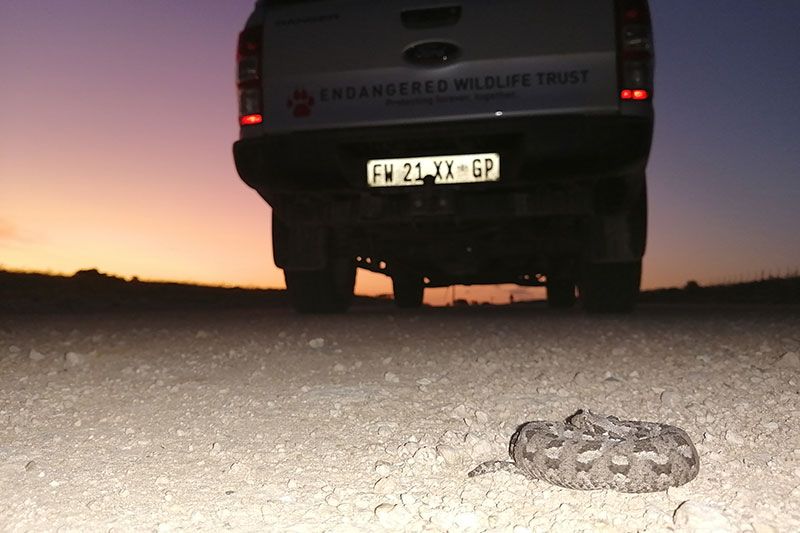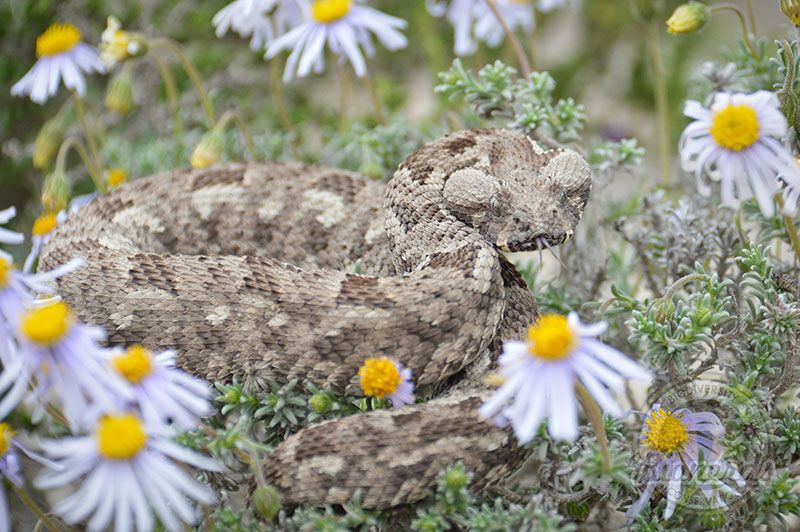Saving South Africa’s most endangered snake
Saving endangered species is a huge challenge, even when the animal in question is a much-loved one. Now consider the problem of protecting a species that can inspire dread in many people. Albany adders, a species of dwarf adder, are highly threatened. These highly venomous snakes are only known from a single small locality in South Africa. They make their home in the mixed thicket and shrub landscape of the Coega Bontveld habitat. This dense, wild landscape provides a perfect home for the snakes. Unfortunately, it’s also being extensively strip-mined for limestone pavement. And the snakes themselves are poached for the pet trade. What’s more, the areas they call home are also under private ownership.
Protecting threatened biodiversity on private land
So how do we protect wild species and endangered animals when the land they live on is in private hands? More than 80% of land in South Africa that is home to threatened biodiversity is owned by individuals or companies. South African legislation, under the National Environment Management: Protected Area Act, helps wildlife organisations work with landowners to voluntarily set aside and protect important habitat to safeguard it for the future through a process called Biodiversity Stewardship. The owners work with conservation experts to map out the area in question and then collaboratively write a management plan relating to how the land will be looked after for a particular species, habitat, or group of species. Declaration then follows a legal process to incorporate the Protected Area zoning into the landownership contract.
Small, obscure species are Jeanne’s specialty
Dr Jeanne Tarrant, Endangered Wildlife Trust (EWT) Programme Manager, has been leading a team of conservationists and scientists to carry out a thorough search in the last known area of Albany adders. These expert herpetologists from EWT in South Africa, already have the know-how to work with land owners to bring private land into Biodiversity Stewardship. Jeanne’s past successes include getting formal protection for an area that’s home to the critically endangered Amathole toad. Small, relatively obscure species in need of much help are her speciality. Now PTES has been supporting Jeanne and her colleagues to help protect the Albany adder.
New hope for Albany adders
The team’s objective is to get sufficient unmined habitat into Biodiversity Stewardship to protect a sustainable population. As well as protecting the core areas where the snakes are still found, Jeanne and her colleagues from EWT are suggesting that the areas where they have historical records can be linked and are also given protection so that, with rehabilitation work, they can once again become home to this little-known but highly threatened species of snake.
Luckily the landowners who, between them, are responsible for 12,500ha of Coega Bontverld habitat, have been very positive about the project. Of course it isn’t as straight forward as just getting agreement, and the process to formally proclaim the area may still take several years. The landowners have to know that they can continue to use parts of their land to earn a living without the protection impeding that. But the first important steps have been taken. We hope that next time Jeanne updates us, there will be positive news that some of this critical habitat has been brought under protection to provide a brighter future for the Albany adder.
Thank you for helping us fund this research to protect Albany adders in South Africa.
If you’d like to support this work, please donate or set up a direct debit here today.
Thank you.



